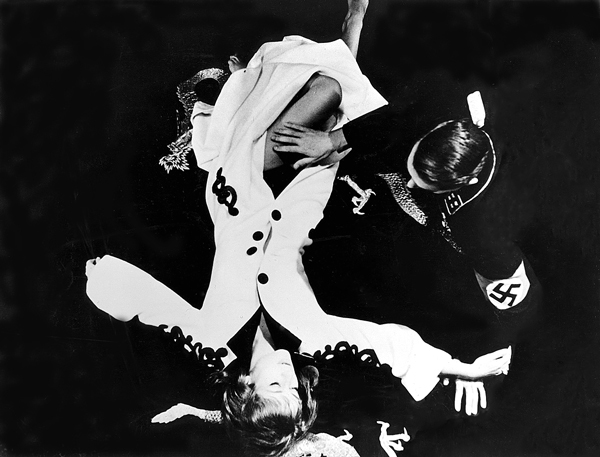LA VICE ET LA VERTU
(“Vice And Virtue”)
Production: France, 1962
Director: Roger Vadim
Category: War/Nazis
As early as 1947 and the release of Poland’s Ostatni Etap, war-films were being made in Europe that have claims to providing the first glimpses of that notorious sub-genre, Nazi exploitation. The claims of the French film La Vice Et La Vertu as a genre milestone are strong, and it clearly anticipates Pier Paolo Pasolini’s Salò (1975) in the way it takes a story by the Marquis de Sade and places it in a WW2 context. Starring Catherine Deneuve and Annie Girardot, Vadim’s film is an adaptation of Sade’s Justine (1791), the story of two sisters, Justine, who is virtuous, and Juliette, who is vicious. Justine’s virtue is punished and Juliette’s vice rewarded – here, in the setting of a gothic castle run by the SS. Justine, played by Deneuve, is tortured by an SS officer played by Roger Hossein, and it certainly seems that La Vice Et La Vertu is unjustly neglected by those considering the antecedents of the film most widely recognized as the first piece of pure Nazi sexploitation, Bob Cresse’s Love Camp 7.
LA VOIE LACTÉE
(“The Milky Way”)
Production: France/Italy, 1969
Director: Luis Buñuel
Category: Absurdism
The second film from Buñuel to feature a representation of the Marquis de Sade. Here Sade is portrayed by Michel Piccoli, and the script quotes from the Marquis liberally. La Voie Lactée is the tale of two tramps on a pilgrimage. As their journey progresses they encounter different characters from varying periods of history, all engaged in theological debate or indulging in religious absurdities. These include the Marquis de Sade who is seen in a dungeon, delivering an atheistic, anti-Christian rant to a girl in chains. Sade’s tirade ends with the succinct: “If your God exists, how I hate him!”. Although nearly all Buñuel’s films feature scenes of mental or physical cruelty, mutilation, sexual perversion, or blasphemy which could all be referenced back to Sade, La Voie Lactée is perhaps the film which, after L’Age D’Or, most specifically references the Marquis both visually and in philosophical terms, albeit in this one relatively short sequence.
Posted by Lady Belladonna


